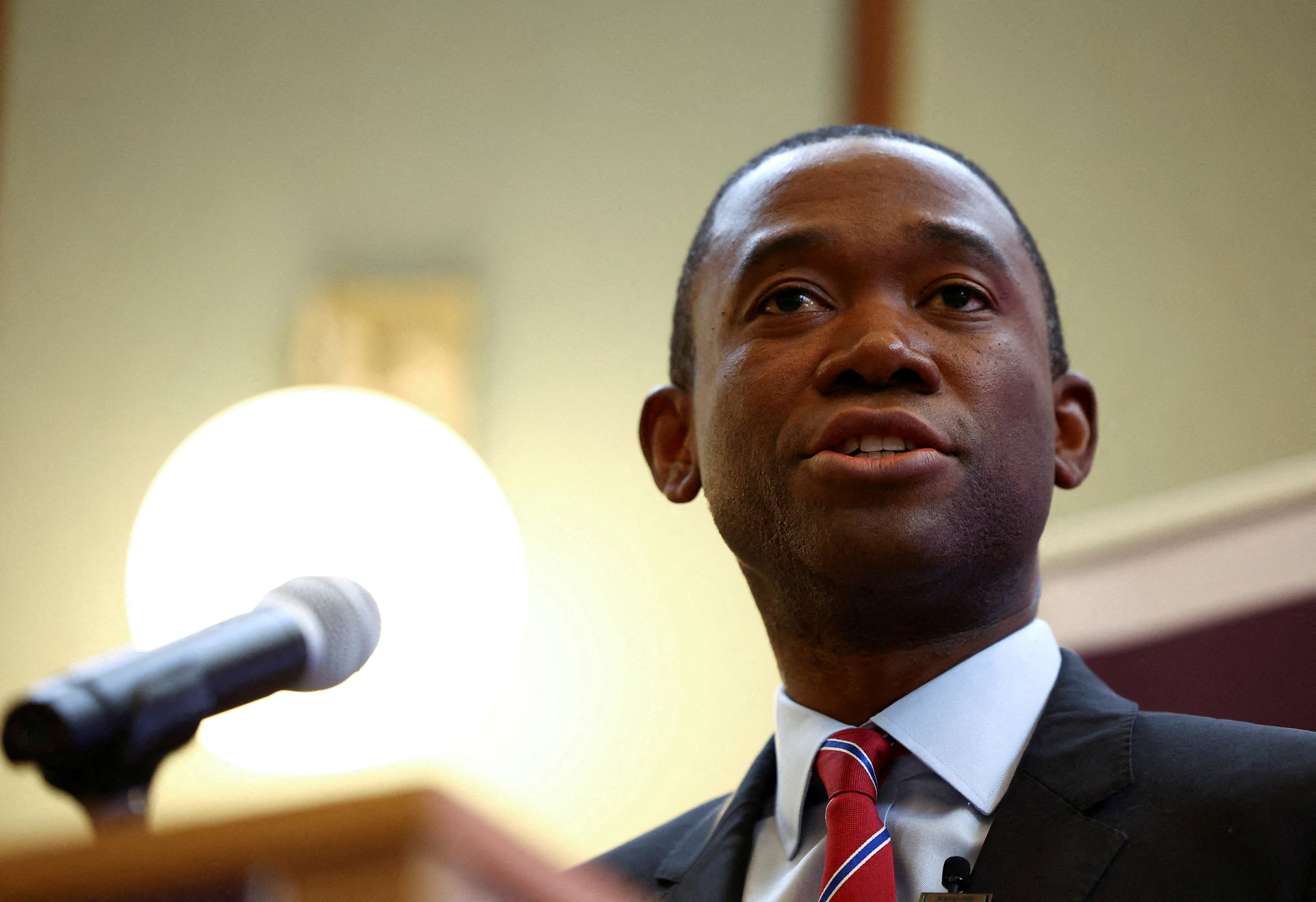
U.S. Deputy Treasury Secretary Wally Adeyemo speaks at the Royal United Services Institute in London, Britain, October 27, 2023. REUTERS/Hannah McKay/File Photo Purchase Licensing Rights, opens new tab
WASHINGTON, June 25 (Reuters) – The United States on Tuesday imposed sanctions on nearly 50 entities and people it accused of moving billions of dollars for Iran’s military.
The U.S. Treasury Department in a statement said those targeted on Tuesday constitute a “shadow banking network” used by Iran’s Ministry of Defense and Armed Forces Logistics (MODAFL) and Islamic Revolutionary Guard Corps (IRGC), both of which are under U.S. sanctions.
The network helped the MODAFL and IRGC – which earn money notably from the sale of oil and petrochemicals – gain access to the international financial system and process the equivalent of billions of dollars since 2020, the Treasury said.
The Treasury said the revenue generated by the MODAFL and IRGC through networks of Iranian exchange houses and foreign cover companies supported the provision of weapons and funding to Iran’s proxy groups, including Yemen’s Houthi group, and the transfer of drones to Russia for use in the war against Ukraine.
Washington has issued rafts of sanctions targeting Iranian drones and the Houthis, who have been launching drone and missile strikes in shipping lanes since November in what they say is solidarity with Palestinians in Israel’s war in Gaza.
“We continue to work with allies and partners, as well as the global financial industry, to increase vigilance against the movement of funds supporting terrorism,” Deputy Treasury Secretary Wally Adeyemo said in the statement.
Iran’s mission to the United Nations said the sanctions issued on Tuesday were part of the “economic war” against Iran.
“This is part of the economic war unjustly waged against the Iranian people by the United States. They have attacked, and we are defending ourselves accordingly. The outcome of this economic war will be determined by the strength of will, not by the capabilities of imposing sanctions,” the mission said.
Tuesday’s action targeted dozens of companies in Hong Kong, the United Arab Emirates and Marshall Islands, as well as Iran and Turkey-based firms.
The Treasury said the MODAFL Supply Division uses exchange houses in Iran that manage numerous cover companies registered in jurisdictions such as Hong Kong or the UAE to launder revenue, including from oil sales conducted by Sahara Thunder, which the U.S. imposed sanctions on in April.
The Treasury at the time accused Sahara Thunder of being a front company that oversees MODAFL’s commercial activities in support of the IRGC and Russia’s war in Ukraine, playing a key role in Iran’s design, development, manufacture and sale of thousands of drones.
The move freezes the U.S. assets of banned companies and individuals, and generally bars Americans from dealing with them. Those that engage in certain transactions with them also risk being hit with sanctions.
Sign up here.
Reporting by Daphne Psaledakis, Jasper Ward and Rami Ayyub; Editing by Chizu Nomiyama
Our Standards: The Thomson Reuters Trust Principles., opens new tab
Daphne Psaledakis is a foreign policy correspondent based in Washington, D.C., where she covers U.S. sanctions, Africa and the State Department. She has covered the rollout of U.S. sanctions on Russia after Moscow’s invasion of Ukraine, Washington’s efforts to enforce its sanctions and the U.S. response to the conflict in Ethiopia, among other issues. She previously covered European Union politics and energy and climate policy for Reuters in Brussels as part of an Overseas Press Club Foundation fellowship in 2019. Daphne holds a Bachelor of Journalism in Print and Digital News and a Bachelor of Arts in International Studies.
